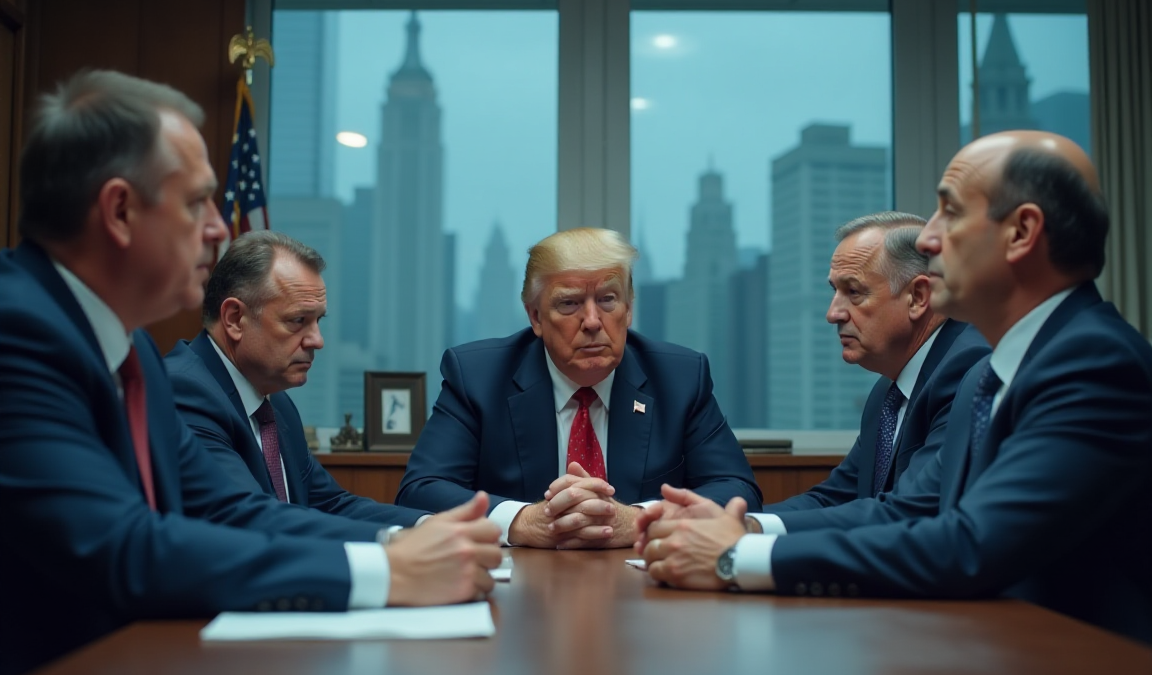As earnings season swings into gear, the cost of ongoing US tariffs is emerging as a source of negative sentiment, weighing on first-quarter results and prompting lowered guidance from several large corporations.
Businesses ranging from snack makers to airlines and telecom firms are adjusting strategies, raising prices, and scaling back financial forecasts in response to tariffs imposed under the Trump administration’s trade policy.
Though most tariffs have been paused until July 8, a 10% blanket rate on a range of imports remains, alongside heavy duties on steel, aluminium, and autos.
The sweeping levies, particularly those targeting Chinese goods, have prompted tit-for-tat responses from Beijing, creating further disruption for American firms with international supply chains.
PepsiCo warns of a 3% drop in core EPS for the year
PepsiCo, one of the first major US companies to post quarterly results, warned of a 3% drop in core earnings per share for the year—reversing earlier expectations of growth.
Chief Executive Ramon Laguarta blamed the shift on rising supply-chain costs tied to tariffs, particularly the 10% levy on soda concentrate imported from Ireland.
That hit comes on top of a 25% duty on aluminium imports imposed in March, affecting packaging costs.
“We expect more volatility and uncertainty, particularly related to global trade developments,” Laguarta said, adding that consumer conditions in key markets remain subdued.
Despite efforts to mitigate supply chain expenses, PepsiCo now expects flat earnings growth on a constant currency basis.
Nokia expects to take up to a €30 million hit to operating profit in Q2
Finnish telecom equipment provider Nokia expects to absorb a €20 million to €30 million hit to operating profit in the second quarter from trade-related tariffs.
President and CEO Justin Hotard said the company is looking to boost its US manufacturing presence and strengthen ties with hyperscale cloud providers to offset the impact.
Still, the tariffs are making it harder for Nokia to meet the higher end of its annual profit guidance.
The expected hit could erase up to 7.6% of analysts’ projected earnings for the company this quarter.
Airlines withdraw forecasts amid economic uncertainty
The impact of tariffs is also being felt in the travel sector, where major US carriers are walking back long-term forecasts.
American Airlines withdrew its 2025 outlook, citing a softening in discretionary spending and volatile government policy.
The carrier joins Southwest Airlines, which earlier this week dropped its 2025 and 2026 projections due to tariff-linked industry instability.
With air travel seen as a non-essential expense, economic pressures have led to reduced bookings and less predictable demand.
Airlines that were riding high just two months ago on strong demand are now facing headwinds as customers cut back.
Chipotle warns of weaker traffic and rising input costs
Fast-casual chain Chipotle Mexican Grill also flagged a drop in consumer visits, citing economic concerns as the primary reason for customers eating out less.
Chief Executive Scott Boatwright pointed to a shift in consumer behaviour starting in February that has continued through April.
“Saving money because of concerns around the economy was the overwhelming reason consumers were reducing the frequency of restaurant visits,” he told analysts.
The company, which sources around half of its avocados from Mexico, also faces a potential hit to margins from earlier tariffs on Mexican agricultural goods.
A previous round of duties was expected to raise Chipotle’s cost of sales by 60 basis points.
Unilever sees limited tariff hit but flags broader uncertainty
Consumer goods major Unilever offered a more tempered outlook.
Reporting better-than-expected first-quarter sales, the company said its mostly local supply chain had helped limit the direct impact of tariffs. However, it acknowledged broader market volatility.
“Given our investments in America and our predominantly local supply chains, at this time, we expect the impact to be limited,” Chief Executive Fernando Fernandez told analysts.
Still, he pointed to currency instability and uncertain consumer sentiment as challenges requiring flexible planning.
While Unilever and rival Nestle have avoided steep US price hikes to stay competitive against cheaper private-label products, other brands—such as EssilorLuxottica and LG Electronics—have either raised prices or are considering doing so.
The post From PepsiCo to American Airlines, Trump tariffs cast a shadow over earnings season as businesses brace for more pain appeared first on Invezz


